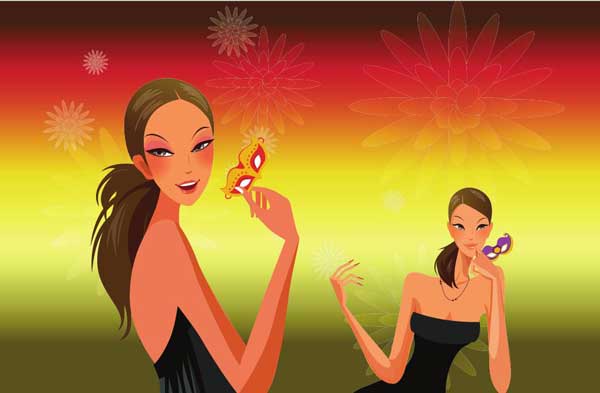
Two girls are unpacking their luggage in a university dorm after going through their registration procedures. Greeting each other, they soon learn they come from the same province. Their conversation continues, and one minute later, they learn they come from not only the same province but also the same city and school.
At that moment, the two girls stop unpacking and look more closely at each other. "Are you Nancy?" one asks the other. "Are you Wendy?' the other responds. The girls then jump to embrace each other. Yes, they are Nancy and Wendy, and they were classmates and good friends in senior high school. The reason they failed to recognize each other is that after taking the college entrance exam, they both went for a series of cosmetic surgeries to "enhance their beauty" to the extent of looking like different persons.
This is the gist of a popular story online.
ALSO READ: Commercial trappings and promotions should not obscure traditional festivals
According to reports, plastic surgeons have to work overtime during summer vacations, especially after the conclusion of the college entrance exam, because thousands of girls make appointments in advance for beauty enhancement procedure. More than 1 million Chinese people underwent cosmetic surgery in 2023, according to some reports.
I am a bit skeptical about the accuracy of the figure because most of the plastic surgeries are done by private hospitals which sometimes are reluctant to report the correct number of such surgeries in order to evade tax. But one thing is for sure: the number of people undergoing cosmetic surgery is on the rise and more and more students like Nancy and Wendy are paying thousands of yuan to "look better".
Reports say an increasing number of girls are asking their parents to pay for their "beauty-enhancing procedure" as their reward for doing well in the college entrance exam. Parents, in general, are mostly happy to pay if they can afford to, because many think that inner beauty and outer beauty are equally important to their daughters' development.
The long summer vacation provides enough time for girls to undergo a cosmetic surgery. When a new school year begins in September, a girl who has undergone a cosmetic surgery and looks "more beautiful" can walk onto the campus with more confidence. In a completely new environment, few people would realize that the girl has probably undergone a double-eyelid or rhinoplasty surgery, or breast augmentation procedure, or all possible procedures.
Chinese society has become tolerant toward young women's efforts to "look beautiful" unlike about 20 years ago when a person with double eyelids would become the favorite topic of discussion of neighbors, people today tend to turn a blind eye toward someone who looks different after being absent from the neighborhood for a few days. Most people tend to believe those undergoing cosmetic surgery are not doing anything wrong by paying, with their own money, to enhance their beauty because it makes them feel more confident of and satisfied with themselves.
Opposing opinions do exist. Some say cosmetic surgeries may weaken women's social standing and turn them into eye candies. Others claim that by being obsessed with their physical appearance, young women could end up neglecting their studies, and lose out on intellectual and spiritual development.
Such criticisms compel us to choose either option A or option B. The question is: Why can't people choose both of them?
More than 100 years ago when the Qing Dynasty (1644-1911) was overthrown, the revolutionaries required all Chinese men to cut off their braids and bid goodbye to feudal rule. Many people refused, because they believed their hair was given to them by their parents and, hence, should never be cut off. Some even said they'd rather be beheaded than cut off their braid.
Keeping that part of China's history in mind, we should appreciate that Chinese society today understands and tolerates young women's wish to enhance their beauty. We hope our Nancys and Wendys walk onto college campuses not only looking more beautiful and confident but also excel in their academic fields.
The author is former deputy editor-in-chief of China Daily.


